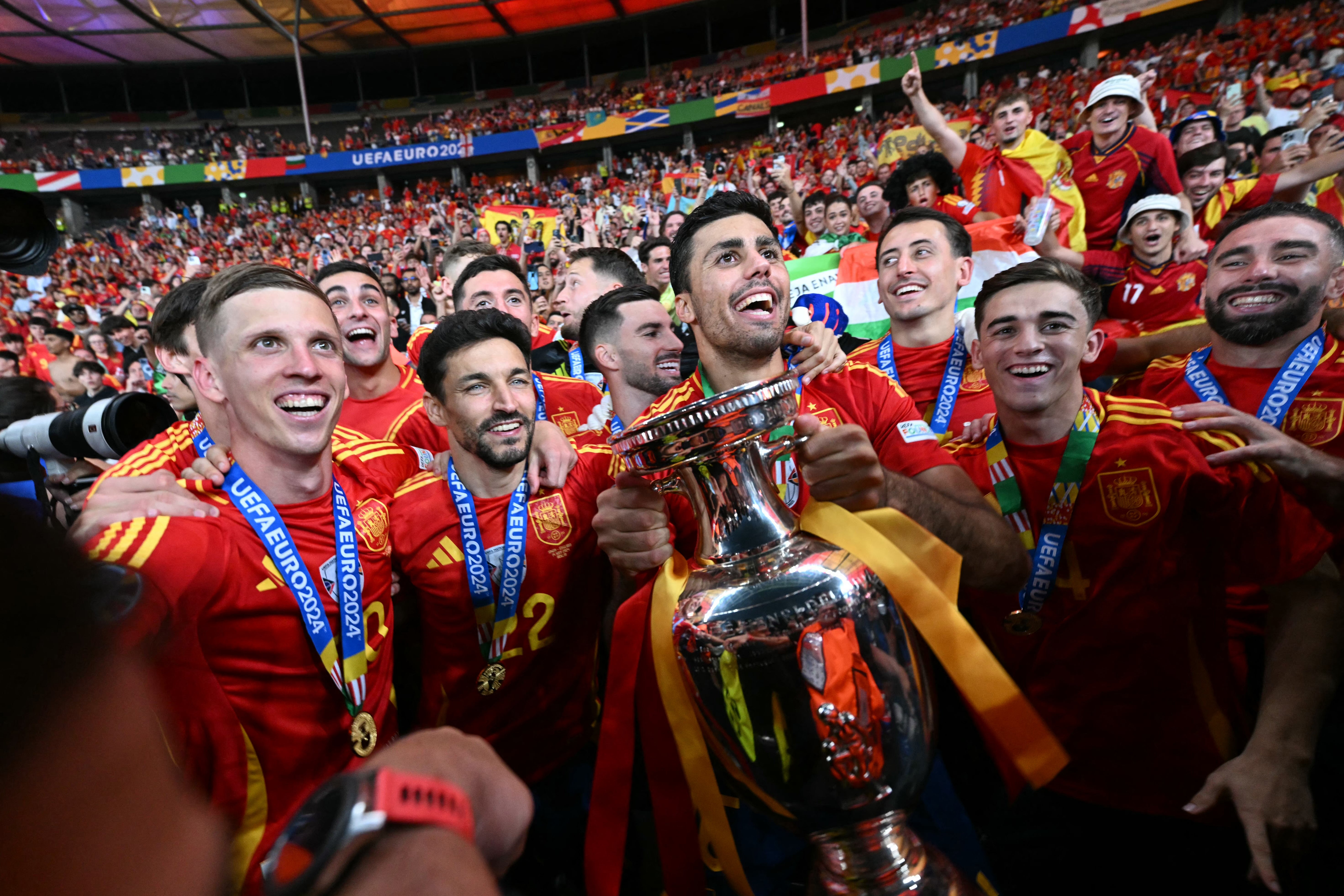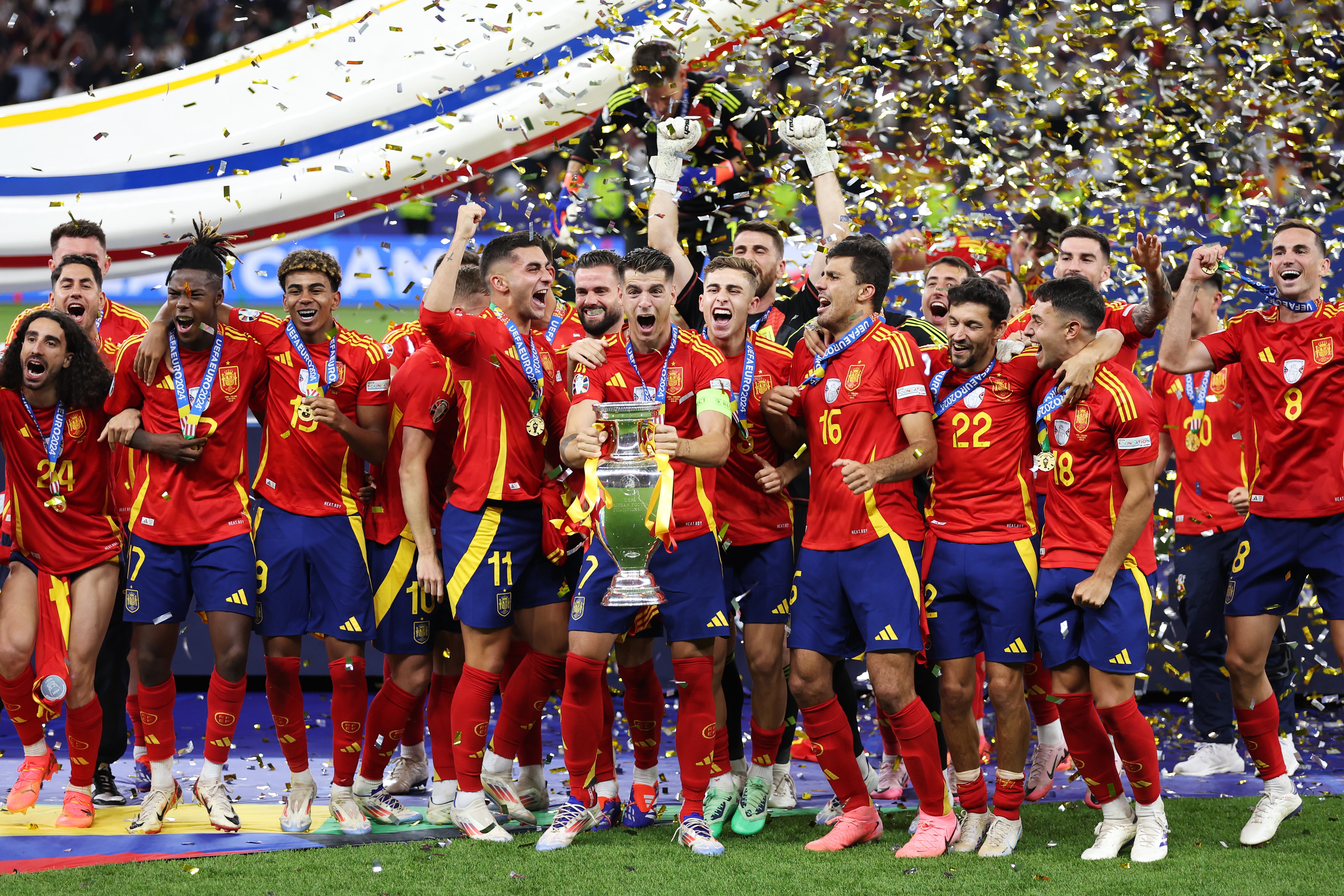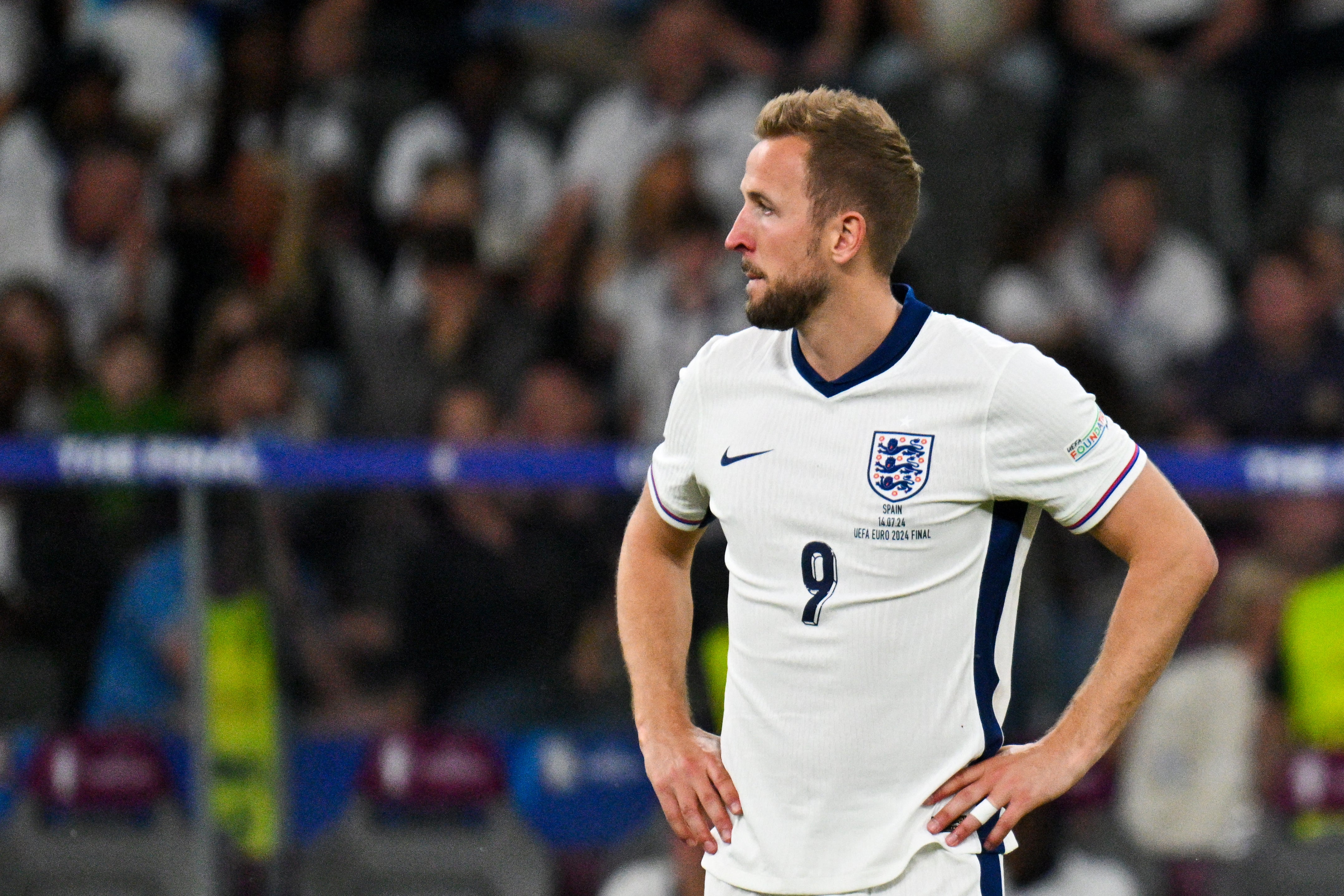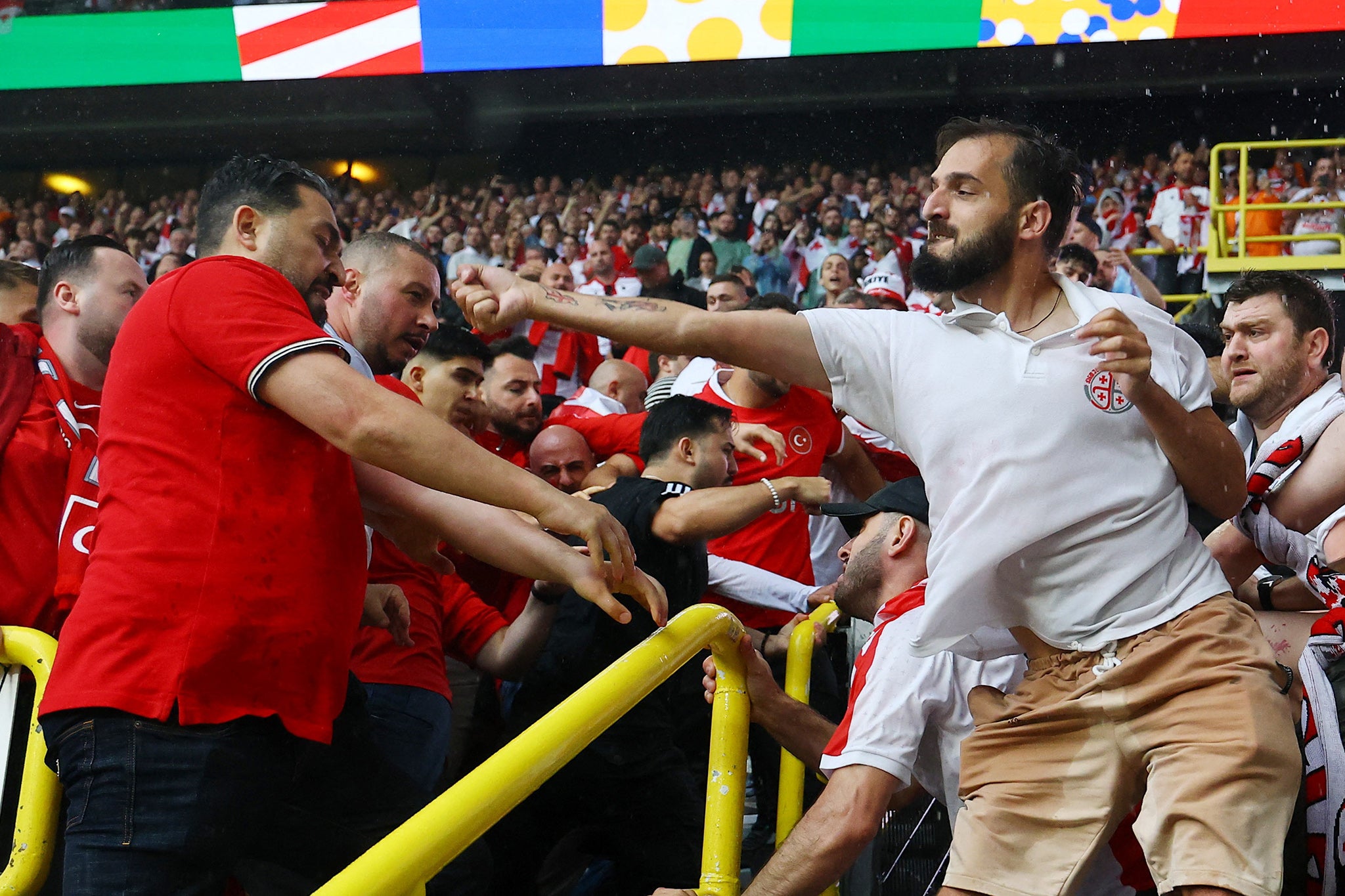Spain won Euro 2024 their way – and they might have sparked a trend
The European Championship will leave a lasting impression on the football landscape after a tournament of hard pressing, spectacular goals and one outstanding team in Germany

Your support helps us to tell the story
From reproductive rights to climate change to Big Tech, The Independent is on the ground when the story is developing. Whether it's investigating the financials of Elon Musk's pro-Trump PAC or producing our latest documentary, 'The A Word', which shines a light on the American women fighting for reproductive rights, we know how important it is to parse out the facts from the messaging.
At such a critical moment in US history, we need reporters on the ground. Your donation allows us to keep sending journalists to speak to both sides of the story.
The Independent is trusted by Americans across the entire political spectrum. And unlike many other quality news outlets, we choose not to lock Americans out of our reporting and analysis with paywalls. We believe quality journalism should be available to everyone, paid for by those who can afford it.
Your support makes all the difference.Before Alvaro Morata left the Spanish dressing room at Berlin’s Olympiastadion, he wanted to ensure one last detail was right. That was for the Y Viva Espana chorus to play as he went by international media. These were the scenes of celebration that the captain had grown up with as a teenager when Spain won were in their 2008-12 glory and he’s always wanted to be part of similar; to recreate a bit of history.
This squad had already done that in a more meaningful sense, while securing their own place in football mythology. Spain have been one of the great European champions, and one of the great tournament teams. They are only the second in history anywhere to have won seven games from seven in any competition, after Brazil 2002. The run was maybe harder than anyone has ever faced, too, in almost all of Europe’s major nations: Croatia, Italy, Germany, France and England.
That was overcome despite many other issues, particularly injury to their entire first-choice midfield, and conceding goals at potentially crucial moments. And yet they kept going, playing assertive and entertaining football, to win each of those games convincingly.
Put short, few teams have won tournaments in such a complete manner, with a real signature to their performance.

Producing such great champions instantly ensures a tournament is memorable. As such, Spain have not just established their own legacy. They have also enhanced that of the tournament. It makes Euro 2024 feel closer to 1984 or 2008, even if some of the football was often more in-keeping with the dour games seen in 2004 or 2016. Didier Deschamps even offered one of the quotes of the tournament in telling those complaining to “change the channel”, going so far as to repeat it.
The great hope from Euro 2024 and Spain’s victory is that it actually consigns the Deschamps approach to the past. This tournament had been split between those national teams who play a pragmatic game and those who play to an ideology, with that dichotomy witnessed in the semi-finals and the final. It matters because football cultures tend to copy champions. That was why Gareth Southgate replicated Deschamps’ 2018 World Cup winners but also the Portuguese Euro 2016 champions. Now, more are likely to look to Spain, especially as they’re so good to watch. An improving Germany are already following.
Like Spain with Lamine Yamal, Nico Williams and Pedri, Julian Nagelsmann’s team are now defined by a much younger generation, particularly Jamal Musiala and Florian Wirtz.
Euro 2024 marked a shift in that sense, that was best symbolised in the almost tragicomic tournament of Cristiano Ronaldo, the struggles of Robert Lewandowski and Romelu Lukaku, but also the more dignified exits of Luka Modric and Toni Kroos.
That comes from a wider move towards more intense pressing, although there was a considerable caveat to that, that coloured discussion over how good the tournament was.
The overbearing domination of the club game – and continuous football calendar – meant too many players turned up too fatigued. They couldn’t perform in the way expected, and it led to a lot of slower matches.

That is also why several lesser-resourced or less successful countries really enjoyed their moment. Georgia, Albania, Austria and Turkey all lit up Euro 2024 for different reasons, and it was no coincidence they were involved in most of the best games, along with Spain and Germany. This variety spoke to how it still represented an antidote to the more predictable club game, even as it suffers from the latter's effects.
The tournament similarly had some core virtues that you would want from any competition. There were epic games, some great storylines, and brilliant moments.
One thing that can certainly be said for Euro 2024 was that it had a high number of superb goals. The highlights reel is something else, with a rich variety ranging from Williams’s run against Georgia to Hakan Calhanoglu’s distinctive half-volley against Czech Republic, along with various long-range wonder strikes. It was genuinely difficult to pick the goal of the tournament. That spoke to a quality that was just waiting to break out, had the players not been so exhausted.
At the same time, Euro 2024 was a reminder that audiences don’t really watch international tournaments for elite quality any more. What else is there to explain how Turkey-Georgia suddenly becomes unmissable on a random weekday evening?
As Southgate astutely put it, “these are not normal football matches, these are national events”. Euro 2024 was a watershed in how it represented a welcome return of huge travelling support. This similarly saw the return of proper atmosphere, with the noise at Turkey and Georgia games experiences to behold. No Scotland didn’t really mean no party, but their fans’ presence at the opening game undeniably added to the sense of event again.

The only issue was that Euro 2024 wasn’t always adept at managing fans, or the logistics. German train problems were one of the themes of the tournament, and questions are to be asked about how much thought was put into how the match calendar linked up with venues. Gelsenkirchen and Dortmund at 9pm proved nightmares late into the night for tens of thousands of fans. This is a lesson for the UK and Ireland for Euro 2028. More than one official complained that Uefa’s executive class didn’t have to experience this, with private jets used even in Germany, so never got a full grasp of it.
It adds to growing questions from admittedly more serious issues at a series of major club finals. The constant noise from within Uefa is that costs are being cut amid grumbles about its running, all as money to the HatTrick programme is increased. This is the regular funding to the individual federations, which is Uefa's equivalent of Fifa’s GOAL programme, and is duly being criticised for fostering clientelism in the same way. The tournament already saw Uefa president Aleksander Ceferin refuse to confirm this would be his last Euros, and that before reports that some associations were willing to back his re-election.
Politics from outside football didn’t intrude on the tournament as much as had been feared, and it should be acknowledged it was superbly policed. There were still some flashpoints. Serbian tension with Croatia and Albania reflected a Europe that is not as “united” as the tournament slogan claimed.

Football has more than enough of its own issues, as so much of Euro 2024 emphasised the problems of perpetual last expansion. To go with basic player fatigue, the last-16 stage sapped some of the competition’s momentum. A 24-team Euros clearly has some positives, but there are probably more negatives. The competition has lost its unique selling point in that regard, in that it no longer has that concentration of quality it showcased between 1996 and 2012.
Euro 2024, like the two before it, was instead more disparate. Spain, at the least, brought it altogether. That may be better for tournaments to come – so long as football authorities don’t seek to keep introducing bad ideas.
Spain, after all, showcased the elementary value of just playing good football. They were among the few to get it right, and set the tournament’s legacy.
Join our commenting forum
Join thought-provoking conversations, follow other Independent readers and see their replies
Comments